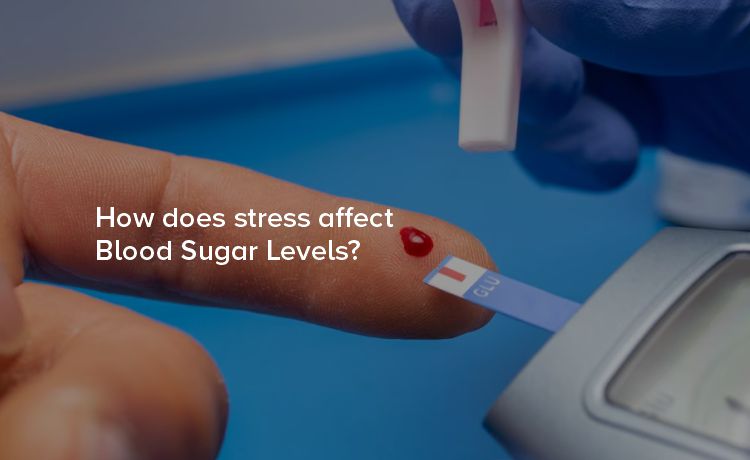
Ever felt overwhelmed and noticed your energy levels drop? That might not be a coincidence. Many people don't realize how much stress can mess with their blood sugar levels. Understanding this connection is essential for anyone trying to maintain a healthy lifestyle, especially for those with diabetes.
Stress triggers a cascade of reactions in your body. When you’re stressed, your body releases hormones like adrenaline and cortisol. These hormones are essential for that fight-or-flight response but can wreak havoc on your blood sugar levels.
Cortisol is often called the "stress hormone." It prepares your body to handle stressful situations by increasing your blood sugar levels, providing you with a quick burst of energy. While this is beneficial in short-term stressful situations, prolonged stress can lead to consistently high blood sugar levels.
Adrenaline works alongside cortisol to increase your blood sugar levels. It helps break down glycogen (stored sugar) in your liver, releasing glucose into your bloodstream. This process aims to provide you with ample energy to handle stress. However, if you’re constantly stressed, this can lead to a continuous cycle of elevated blood sugar levels.
Your liver plays a crucial role in managing your blood sugar levels. During stressful times, your liver releases more glucose into your bloodstream to keep you energized. While this can be useful for short-term stress responses, frequent stress can lead to long-term issues like insulin resistance.
When stress becomes chronic, it can have a more severe impact on your blood sugar levels. Chronic stress keeps your cortisol levels high, which can lead to insulin resistance. Insulin resistance makes it harder for your cells to absorb glucose, causing higher blood sugar levels over time.
Insulin is the hormone responsible for allowing glucose to enter your cells. When you develop insulin resistance, your cells don’t respond as well to insulin, requiring more of it to manage your blood sugar levels. This inefficiency can lead to consistently elevated blood sugar levels, increasing the risk of type 2 diabetes.
Chronic stress can also cause frequent blood sugar spikes. These spikes make it harder to manage your blood sugar levels and can lead to long-term complications like nerve damage, kidney problems, and cardiovascular issues.
Stress often leads to emotional eating. Many people turn to comfort foods high in sugar and carbs when they’re stressed. These foods can cause rapid spikes in blood sugar levels, making it even harder to manage stress's impact on your health.
Managing stress effectively can help you maintain healthy blood sugar levels. Here are some practical tips to get you started:
Mindfulness and meditation can help you manage stress by calming your mind and reducing cortisol levels. Simple techniques like deep breathing or guided meditation can make a significant difference in how your body responds to stress.
Exercise is a natural stress reliever. Physical activity helps lower cortisol levels and improves insulin sensitivity. Aim for at least 30 minutes of moderate exercise most days of the week, whether it's walking, jogging, or yoga.
Maintaining a balanced diet is crucial for managing stress and blood sugar levels. Focus on whole foods like fruits, vegetables, lean proteins, and whole grains. Avoid excessive sugar and processed foods, which can exacerbate stress-related blood sugar spikes.
Poor sleep can contribute to higher stress levels, which, in turn, affects your blood sugar levels. Ensuring you get quality sleep can help manage both stress and blood sugar.
Quality sleep helps regulate cortisol levels and improves insulin sensitivity. Aim for 7-9 hours of sleep per night to keep your stress and blood sugar levels in check.
Good sleep hygiene can improve the quality of your sleep. Establish a regular sleep schedule, create a calming bedtime routine, and ensure your sleep environment is conducive to rest.
Sleep deprivation increases cortisol levels, leading to higher blood sugar levels. Lack of sleep can also impair insulin sensitivity, making it harder to manage your blood sugar effectively.
Lean on family and friends for emotional support. Sharing your feelings and experiences can help alleviate stress and provide a sense of belonging.
Don’t hesitate to seek professional help if you’re struggling with stress. Therapists and counselors can provide valuable tools and strategies to manage stress and its impact on your health.
Regularly monitoring your blood sugar levels can help you understand how stress affects you personally. This awareness can guide you in making lifestyle adjustments to manage both stress and blood sugar effectively.
A glucose meter can help you track your blood sugar levels throughout the day. Monitoring your levels can provide insights into how different stressors impact your blood sugar.
Keeping a stress journal can help you identify patterns and triggers. Note down stressful events, your emotional responses, and any changes in your blood sugar levels. This information can help you develop effective coping strategies.
If you’re on medication for diabetes, consult your healthcare provider about adjusting your dosage during periods of high stress. They can provide guidance to help you manage your blood sugar levels more effectively.
Stress is an unavoidable part of life, but understanding its impact on your blood sugar levels is crucial, especially if you have diabetes. By implementing effective stress management strategies, maintaining a balanced diet, and regularly monitoring your blood sugar levels, you can mitigate stress's adverse effects on your health.